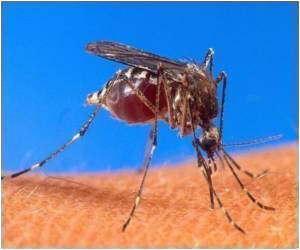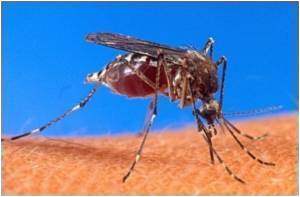
An international team of scientists, led by researchers from the Department of Pediatrics at the University of California, San Diego School of Medicine, conducted high-throughput screening of nearly 350,000 compounds in the National Institutes of Health's Molecular Libraries Small Molecule Repository (MLSMR) to identify compounds that inhibit an enzyme which plays an important role in parasite development: Plasmodium falciparum glucose-6-phosphate dehydrogenase (PfG6PD) is essential for proliferating and propagating P. falciparum.
"The enzyme G6PD catalyzes an initial step in a process that protects the malaria parasite from oxidative stress in red blood cells, creating an environment in which the parasite survives," said senior author Lars Bode, PhD, assistant professor in the UCSD Department of Pediatrics, Division of Neonatology and the Division of Gastroenterology, Hepatology and Nutrition.
People with a natural deficiency in this enzyme are protected from malaria and its deadly symptoms, an observation that triggered the reported research.
The parasitic form of the enzyme (PfG6PD) is what contributes the majority of G6PD activity in infected red blood cells. Because the parasite lives in the blood of a malaria-infected person, the scientists aimed at identifying compounds that inhibit the parasitic form but not the human form of the enzyme.
"'We didn't want to interfere with the human form of the enzyme and risk potential side effects,"' Bode explained.
Advertisement
ML276 represents the first reported selective PfG6PD inhibitor, which stops the growth of malaria parasites in cultured red blood cells - even those parasites that developed resistance to currently available drugs.
Advertisement
The findings are currently published in the online version of the Journal of Medicinal Chemistry.
Source-ANI












